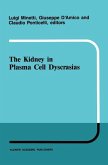This book does not pretend to be a comprehensive textbook of nephrology, nor is it a guide to the management of renal disease, as space does not allow the description or discus sion of investigation and treatment. Its intention is to illustrate the diverse diseases which present to nephrologists. Since the key to understanding the effects and progression of a disease are to know and com prehend its pathology, I have approached the subject not by discussing presenting symptoms of single diseases in different sections, which would lead to much repetition, but by describing the disorders according to the mechanisms which cause them. To illustrate the text I have chosen the most immediate clue which usually appears in a given dis ease, which may therefore be a clinical sign, a radiograph or the histological appearance of a renal biopsy. D. Gwyn Williams Guy's Hospital, London 1. Trauma Trauma is a common cause of acute renal failure. This may arise directly from injuries to the kidneys themselves despite their protected position (Figure 1). Trauma can also cause acute renal failure by damaging the renal arteries, which may be actually avulsed from the kidneys, or stretched at the time of impact, with tearing of the arterial wall and secondary thrombosis. Figure 2 shows the renal arteriogram of a young man who presented with anuric acute renal failure after a motorbike accident. Only the upper pole of the right kidney is Figure 1.
Dieser Download kann aus rechtlichen Gründen nur mit Rechnungsadresse in A, B, BG, CY, CZ, D, DK, EW, E, FIN, F, GR, HR, H, IRL, I, LT, L, LR, M, NL, PL, P, R, S, SLO, SK ausgeliefert werden.









